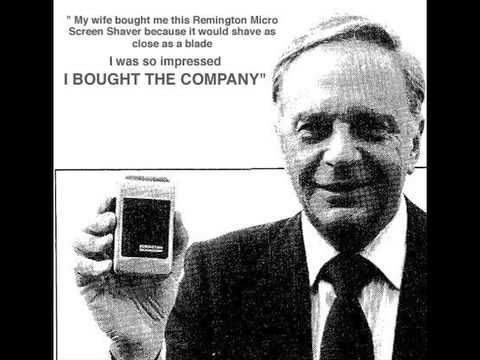- BY Colin Yeo

High Court finds Tier 1 Entrepreneur landline requirement irrational
THANKS FOR READING
Older content is locked

A great deal of time and effort goes into producing the information on Free Movement, become a member of Free Movement to get unlimited access to all articles, and much, much more
TAKE FREE MOVEMENT FURTHER
By becoming a member of Free Movement, you not only support the hard-work that goes into maintaining the website, but get access to premium features;
- Single login for personal use
- FREE downloads of Free Movement ebooks
- Access to all Free Movement blog content
- Access to all our online training materials
- Access to our busy forums
- Downloadable CPD certificates
The High Court has found part of the Tier 1 Entrepreneur rules to be irrational in the case of R (on the application of Sabir & Ors) & Anor v The Secretary of State for the Home Department [2015] EWHC 264 (Admin). Despite succeeding on part of the challenge, though, the case ultimately failed because there were other parts of the rules that the claimant has also been refused under and which the claimant failed to convince the judge were unlawful.
The case is instructive for non specialists on the arcane and bizarre bureaucratic requirements that entrepreneurs are required to establish in order to obtain a visa. Designed by civil servants who themselves are not known for their entrepreneurial tendencies, the requirements would surely have persuaded Richard Branson and other actual entrepreneurs to Pursue Other Interests.
The Points Based System requirements should rather be seen as a fantastic test of whether a person with lots of money (a) has a good lawyer or (b) would make a good civil servant. Neither is, shall we say, a reliable predictor of future entrepreneurial success.
The specific paragraph on which the claimant succeeded was 41-SD(c)(iv) of Appendix A to the Immigration Rules, which requires an applicant to provide:
one or more contracts showing trading. If a contract is not an original the applicant must sign each page of the contract. The contract must show:
(1) the applicant’s name and the name of the business;
(2) the service provided by the applicant’s business; and
(3) the name of the other party or parties involved in the contract and their contact details, including their full address, postal code, landline phone number and any email address.
The materials submitted by the claimants did not include a landline phone number so the applications had been refused by the Home Office. Helen Mountfield QC sitting as a Deputy Judge of the High Court held that requiring as proof of being a genuine entrepreneur that one is trading with a business with a landline was, in this day and age, irrational:
I also accept the Claimants’ argument that by making an absolute requirement that the client business must have a landline telephone and must contain details of it in the contractual documentation in order for that documentation to ‘count’ as proof of genuine trading, the Secretary of State has created an evidential rule which is partial between those who contract with a business which happens to have a landline (but need not have any mobile telephone or email details) and those who contract with a business which happens to have only a mobile telephone, (though also email details) or where the landline details can be supplied but are not included in the contractual documentation itself. I see no rational justification for that distinction. To require one form of link (email address) only if it exists, but to reject a potentially very large contract as proof of genuine trading on the happenstance that the client business has chosen to operate using only mobile and not landline telephones would seem to me to go further than can be regarded as reasonable to secure the genuineness requirement, and to introduce a partiality between different applicants which is not explained or justified by the ostensible objective of the rule. No evidence has been put in to explain the rationale for an absolute requirement that for evidence of a contract with a client business to be accepted as proof of genuineness, the client business must both have a landline and include it in contractual documentation; whereas a contract with an otherwise identical client business would be regarded as proof of a genuine trading relationship provided it had a landline telephone number, even if it does not have a website or email address at all, and even if it does not have any mobile contact telephone numbers.

Ultimately this did not help the claimants. They were also required under paragraph 41-SD (c)(iii) to provide:
one or more of the following specified documents:
(1) Advertising or marketing material, including printouts of online advertising, that has been published locally or nationally, showing the applicants name (and the name of the business if applicable) together with the business activity;
(2) Article(s) or online links to article(s) in a newspaper or other publication showing the applicant’s name (and the name of the business if applicable) together with the business activity;
(3) Information from a trade fair(s) at which the applicant has had a stand or given a presentation to market his business, showing the applicant’s name (and the name of the business if applicable) together with the business activity, or
(4) Personal registration with a trade body linked to the applicant’ occupation.

This they also had not done. The marketing materials that were submitted to show trading did not include the actual names of the claimants. How many businesses do you know where the name of the business owner is not included on the advertising materials? Quite a few, I’d warrant. Even Victor Kiam might have struggled with this requirement. Nevertheless, the judge held that the requirements in the rules could not be considered irrational and thus unlawful because other types of evidence could potentially be provided:
In my judgment, the evidential requirements of paragraph 41-SD(c)(iii) cannot be said to go beyond that which the Secretary of State may legitimately require for this purpose. That paragraph provides a range of types of evidence which can be provided to demonstrate these matters. One satisfactory form of proof is marketing material containing sufficient evidence of the genuineness of the business and of the entrepreneur’s link to it. Marketing materials, which are within the applicant’s own control, can reasonably be expected to explain (as required) what the business is, the business name and to demonstrate the link between the applicant or applicants and the business. This does not require all the material to be on one website. (For example, a website which showed what the business did, with its name, and business cards which showed the Claimants held themselves out as directors of the business may, in combination, have been sufficient to satisfy this criterion). I do not see a basis for saying that the requirements of the rule were in any way irrational.
Were the the claimants actually, in real life, genuine entrepreneurs creating jobs and tax revenues for the UK? Who knows. It does not matter; what matters is whether the right marketing materials were submitted to the Home Office in the correct prescribed format, a format prescribed by civil servants who I think we can assume have no actual business experience.
The case was heard on 22 January 2015 and judgment handed down on 10 February 2015 (it only just appeared on BAILII as far as I am aware) so the recent hardline Court of Appeal case of Iqbal & Tank v Secretary of State for the Home Department [2015] EWCA Civ 169 was not taken into account. Whether that would have made a difference will remain unknown.
SHARE

